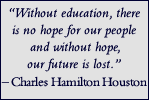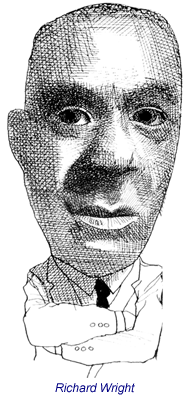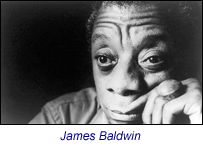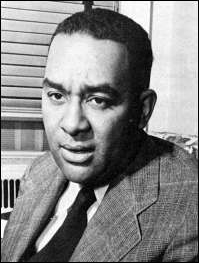|
The Enduring Importance of Richard Wright For a century or more, a general boycott prevailed whereby America’s great colleges and universities refused to even consider the appointment of a black person to their faculties.
Wright was born on September 4, 1908, on a Mississippi plantation 22 miles east of Natchez. All of his four grandparents were slaves. He would find it ironic that today there is a plaque in Natchez marking his birth, for his upbringing in the South was a bitter, fearful experience, not something he looked back on with any fondness. His father deserted his family when Richard was five years old. He was shuttled to different family homes in Mississippi (Jackson and Greenwood) and Arkansas (Elaine and West Helena) before moving to Memphis. There was rarely enough food in the house. At six he became a drunkard, egged on by men who frequented a saloon. His grandmother was a Seventh-day Adventist who didn’t let Richard read books that strayed from this gospel. He was beaten severely for various infractions. He started school late because he didn’t have presentable clothes to wear. He never graduated from high school. And from a very early age he was abused mentally and physically by racist employers. In his memoir, Black Boy, Wright described those early years as “dark and lonely as death,” causing him to reflect as follows about black life in America:
Those dark views framed his early books, Uncle Tom’s Children (1938), a collection of short stories depicting lynchings of blacks in the South, Native Son (1940), his breakthrough novel featuring the brutish Bigger Thomas, who kills a white woman out of fear of being caught in her room and then stuffs her body into a furnace, and Black Boy (1945), which stands as one of the great memoirs of American literature. These three books laid bare, unflinchingly, the desperation felt by African Americans living under Jim Crow laws and practices. No one, before Richard Wright, had exposed with such emotional power the oppression faced by Negroes in America. It would not be an exaggeration to say that Richard Wright’s books helped to lay the ground for the civil rights movement of the 1950s and 1960s. Wright’s idea of himself emerged from the caldron of segregation in the South. He wrote in Black Boy:
Shortly after writing that, in 1947, Wright and his wife packed their bags and moved to Paris to escape the humiliation they faced as an interracial couple in New York City. Except for brief visits in 1949 and 1950, he never returned to the United States. Richard Wright’s influence on American literature was profound. Native Son was a commercial as well as a critical success. It sold 315,000 copies in the first three months after publication, was a selection of the Book-of-the-Month Club, was translated into French, German, Italian, Dutch, and Czech, and was adapted for the theater and motion pictures. Black Boy, similarly, rang cash registers. It sold 195,000 copies through Harper and another 351,000 through the Book-of-the-Month Club, making it the fourth largest selling non-fiction title of 1945. Wright was the first African-American writer to reach such a wide audience. The critic Irving Howe said: “The day Native Son appeared, American culture was changed forever. No matter how much qualifying the book might later need, it made impossible a repetition of the old lies. In all its crudeness, melodrama, and claustrophobia of vision, Richard Wright’s novel brought out into the open, as no one ever had before, the hatred, fear, and violence that have crippled and may yet destroy our culture.” (These thoughts were echoed this year in Barack Obama’s speech on race.) Wright’s short life (he died in 1960) represented a triumph of dogged determination over the virulent racial prejudice he depicted in his books. He wrote his first short story, The Voodoo of Hell’s Half-Acre, when he was 15 years old. In 1925, while working in Memphis as a dishwasher and delivery boy, he began to gorge himself on books, which he gained access to by using the library card of a white coworker. A revelation to him was the discovery of H.L. Mencken, the acerbic critic of the Baltimore Sun and cofounder of The American Mercury. Mencken tossed off such witticisms as: “Every man must be ashamed for the government under which he lives” and “Democracy is the pathetic belief in the collective wisdom of individual ignorance.” As Wright explained in Black Boy, it was Mencken who showed him how words could be used as weapons. And he soon began to wield this weaponry after he moved to Chicago, where he worked as a sorter in the post office, an orderly at Michael Reese Hospital, a street sweeper, and ditch digger. At the same time, he was writing furiously — short stories, poetry, a novel, political articles. He joined the Communist Party and much of his writing appeared in leftwing publications such as Anvil, Left Front, Midland Left, and New Masses. He moved to New York in 1937, becoming Harlem editor of the Communist newspaper, Daily Worker, and a contributor to the Federal Writers’ Project. His first book, Uncle Tom’s Children, established him as an important writer and authentic interpreter of the blighted life he and other African Americans had endured in the South. The four stories in this book were wrenched from the savage conduct of whites who regarded blacks as sub-human. Re-read today, these tales still pack a powerful punch. In “Long Black Song,” Silas, a black farmer whose wife has been raped and whose house is about to be burned down, says: “The white folks ain never give me a chance! They ain ever give no black man a chance! There ain nothing in yo whole life yuh kin keep from em! They take yo lan! They take yo freedom! They take yo women! N then they take yo life!” And in another of the stories, “Fire and Cloud,” a black minister, Dan Taylor, has these thoughts as he contemplated a hunger march planned by starving members of an African-American community: “Thas the way its awways been! Seems like the white folks just erbout owns this whole worl! Looks like they conquered everything. We black folks is just los in one big white fog.” This theme continued in Native Son, only now the setting was the urban streets of Chicago, where blacks were still segregated and unable to participate fully in the social and economic lives of the city. Bigger and his friends liked to play a game called “white.” Here he and his friend Gus were having this mock telephone conversation:
After this imaginary conversation, Bigger says to Gus: “They don’t let us do nothing.” Gus replies: “Who?” And Bigger says: “The white folks.” “You talk like you just now finding that out,” Gus said. And Bigger replies:
The frustration Bigger Thomas felt erupted into raw violence. The frustration Richard Wright felt erupted into writing. The last section of Native Son deals with Bigger’s trial for murder. Wright, who was then still a member of the Communist Party, has Bigger defended by a white, Jewish, Communist lawyer, who delivers a long, Marxist defense of his client:
After the success of Native Son, Wright wrote an essay explaining “How Bigger Was Born.” He recalled reading the reviews of his first book, Uncle Tom’s Children, and he said he then realized that “I had made an awfully naïve mistake. I found that I had written a book which even bankers’ daughters could read and weep over and feel good about. I swore to myself that if I ever wrote another book, no one would weep over it; that it would be so hard and deep that they would have to face it without the consolation of tears.” Richard Wright had an on-and-off relationship with the Communist Party, first in Chicago and then in New York. He objected to them telling him how to write and he tried, unsuccessfully, to get them to tackle racial discrimination in America during World War II. His break with the party became public in 1944 when he published in the Atlantic Monthly an essay entitled, “I Tried to be A Communist.” This essay was to be republished after the war in the Richard Crossman anthology, The God That Failed. Despite his very public denunciation of the Communist Party, Wright was to be harassed by agencies of the U.S. government — the FBI, State Department, and CIA — for the rest of his life. How demented these agents were can be seen from the investigation started in 1941 after the publication by Viking of 12 Million Black Voices: A Folk History of the Negro in America. This was largely a photographic book, with Wright supplying the text. Files obtained under the Freedom of Information Act showed that the FBI tried to determine if the publishing of this book constituted a violation of the sedition laws. Wright was a model and mentor for many African-American writers. He helped James Baldwin, Chester Himes, and Gwendolyn Brooks get published. Every African-American writer who passed through Paris made a point of visiting with him. Lorraine Hansberry’s play, Raisin in the Sun, was revived recently on Broadway and the ABC television network. It was first performed in 1959, a year before Wright died, and it has much of the same sensibility as Wright’s short stories and novels. And it too takes place in Chicago.
“Literature and sociology are not one and the same,” Baldwin argued. He said the problem with protest novels dealing with Negroes, beginning with Harriet Beecher Stowe’s Uncle Tom’s Cabin, is that they define the Negro by the conditions under which he lives, they fail to present him as a human being. And readers, said Baldwin, get “a definite thrill of virtue from the fact that they are reading a book at all. This report from the pit reassures us of its reality and its darkness and of our own salvation.” This was a frontal attack on Wright’s belief that literature should be an instrument for social progress, and it led to a rupture between the two. In his book, Nobody Knows My Name, Baldwin recounted the difficult conversations they had had:
Still, after Wright’s death, Baldwin has this to say about the man he once considered a father:
Richard Wright’s contributions to American literature were perhaps best summed up by Dan McCall, professor of American studies at Cornell University, in his 1969 book, The Example of Richard Wright:
The books that Wright wrote in his Paris years never achieved the audiences of his earlier works, but they were very productive years. He pounded away at his typewriter: novels (The Outsider, Savage Holiday, The Long Dream), nonfiction (Black Power, The Color Curtain, Pagan Spain), poetry (Haiku: This Other World), and numerous essays (including “I Choose Exile” and “White Man, Listen”). And four books were published after his death: Eight Men, Lawd Today, Rite of Passage and A Father’s Law. Lawd Today was actually the first novel he wrote, in 1935, when it was entitled Cesspool. It was turned down by eight publishers, and Wright had set it aside.
Rowley’s book is generally regarded as the best of the five. An accomplished writer, she previously wrote an award-winning biography of the Australian novelist, Christina Stead. More recently, in 2005, she published Tete-a-Tete: The Tumultuous Lives & Loves of Simone de Beauvoir and Jean-Paul Sartre. Rowley’s doesn’t deal so much with Wright’s books as it does with his personal life. And she unearthed details of that life which the other biographers had missed. So how does an Australian come to write a biography of Richard Wright? In an interview with Robert Birnbaum on the literary website, Identity Theory, she related how she came to the United States on a sabbatical in 1994 and spent six months in Austin, Texas, where African Americans and Hispanics lived on one side of the town, whites on the other. “While I was in Austin,” she said, “I met a young black guy who said to me that Richard Wright had changed his life. I was really struck by that. I had thought that Wright was a bit old fashioned and not interesting to young people.” The next day she was in a bookstore looking up Wright’s works and soon she was re-reading books she had read in her 20s. “Man, that guy is visceral reading, powerful stuff,” she said. Rowley’s final appraisal of Richard Wright:
Hazel Rowley’s biography is being reissued as a paperback this spring by the University of Chicago Press. Most of Wright’s books are still in print. One that is not is Twelve Million Black Voices, which is difficult to find. A copy in good condition fetches from $1,500 to $2,000 in the rare book market. In 1991 the Library of America issued a two-volume set of Wright’s major works. The set was edited by Arnold Rampersad, professor of English at Stanford University, who used the original manuscripts submitted by Wright to publishers, thereby presenting these books as Richard Wright wanted them to be seen.
|
|




 Richard Wright, who would have been 100 years old this year, was, arguably, the most influential African-American writer of the twentieth century. He stood astride the midsection of that century as a battering ram, paving the way for the black writers who followed him: Ralph Ellison, Chester Himes, James Baldwin, Gwendolyn Brooks, Lorraine Hansberry, John Williams. Today, 48 years after his death, his legacy remains strong; his daughter, Julia Wright, is helping to keep it alive. She succeeded in getting HarperCollins to publish the unfinished novel her father was working on in the weeks before his death. It was published in January under the title, A Father’s Law. And she will host a series of seminars this year that will discuss her father’s work.
Richard Wright, who would have been 100 years old this year, was, arguably, the most influential African-American writer of the twentieth century. He stood astride the midsection of that century as a battering ram, paving the way for the black writers who followed him: Ralph Ellison, Chester Himes, James Baldwin, Gwendolyn Brooks, Lorraine Hansberry, John Williams. Today, 48 years after his death, his legacy remains strong; his daughter, Julia Wright, is helping to keep it alive. She succeeded in getting HarperCollins to publish the unfinished novel her father was working on in the weeks before his death. It was published in January under the title, A Father’s Law. And she will host a series of seminars this year that will discuss her father’s work.  As is often the case, pioneers get displaced by their successors. This was certainly the case with Richard Wright and James Baldwin. In 1949, before any of his novels had been published, Baldwin turned on Wright and other writers of naturalistic fiction in an essay, “Everybody’s Protest Novel,” appearing first in a now defunct magazine, Zero, and later that year in Partisan Review.
As is often the case, pioneers get displaced by their successors. This was certainly the case with Richard Wright and James Baldwin. In 1949, before any of his novels had been published, Baldwin turned on Wright and other writers of naturalistic fiction in an essay, “Everybody’s Protest Novel,” appearing first in a now defunct magazine, Zero, and later that year in Partisan Review.  There have been five full-length biographies of Richard Wright. The first was Richard Wright, by Constance Webb, published by Putnam in 1968. She had a personal connection to Wright through her former husband, C.L.R. James, a West Indian writer and Trotskyite intellectual who was a close friend of Wright. The second was The Unfinished Quest of Richard Wright, by Michel Fabre, a French academician, published by William Morrow in 1973. The third was Richard Wright: Ordeal of A Native Son, by the late Addison Gayle, author of a number of books on black writers and a longtime professor of English at City University of New York, published by Anchor Press/Doubleday in 1980. The fourth was Richard Wright: Daemonic Genius, by the late Margaret Walker, a friend of Wright’s when he was in Chicago, published by Warner Books in 1988. And the fifth was Richard Wright: The Life and Times, by Hazel Rowley, an Australian writer, published by Henry Holt in 2001.
There have been five full-length biographies of Richard Wright. The first was Richard Wright, by Constance Webb, published by Putnam in 1968. She had a personal connection to Wright through her former husband, C.L.R. James, a West Indian writer and Trotskyite intellectual who was a close friend of Wright. The second was The Unfinished Quest of Richard Wright, by Michel Fabre, a French academician, published by William Morrow in 1973. The third was Richard Wright: Ordeal of A Native Son, by the late Addison Gayle, author of a number of books on black writers and a longtime professor of English at City University of New York, published by Anchor Press/Doubleday in 1980. The fourth was Richard Wright: Daemonic Genius, by the late Margaret Walker, a friend of Wright’s when he was in Chicago, published by Warner Books in 1988. And the fifth was Richard Wright: The Life and Times, by Hazel Rowley, an Australian writer, published by Henry Holt in 2001.